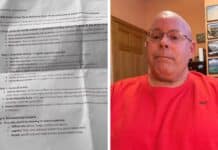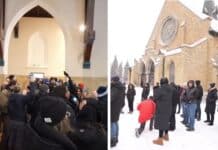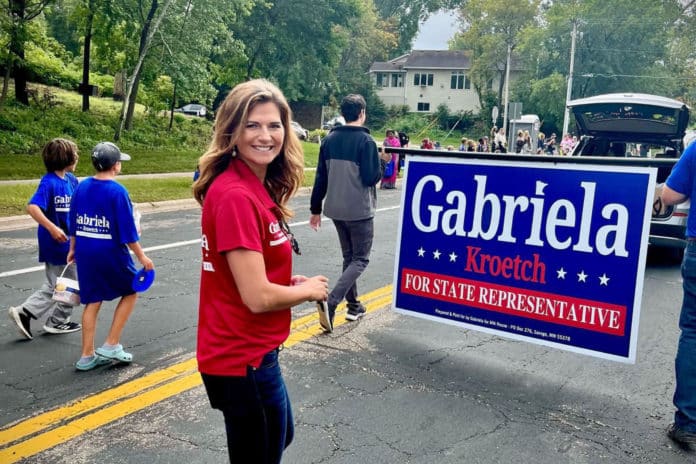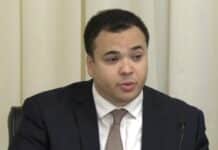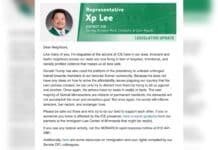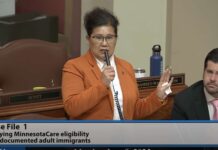She’s a wife, mother, first generation immigrant and, if things go her way, she’ll become a Republican state legislator in November.
Gabriela Kroetch grew up in Slovakia in the waning years of communist rule when her parents spoke in whispers and her family secretly attended church. She remembers what it was like to live in a country that expected and rewarded compliance.
The past couple of years were an eerie reminder of a way of life she thought she’d left behind when she emigrated here 20 years ago.
In March 2020, Gov. Tim Walz issued a COVID emergency order that lasted 16 months, until the legislature voted to extinguish his authority. It gave her pause. When he set up a hotline for Minnesotans to report their fellow citizens to the government, Kroetch told her husband, “This is exactly like where I came from.”
Though totalitarianism is foreign to most Americans, it’s familiar to Kroetch. She pushes back on arguments it wouldn’t occur here. “No country is immune to communism or a totalitarian system,” she says, adding, “I don’t think people understand how bad it is for society to create such a toxic environment where people are afraid to talk to their neighbors because they don’t know who to trust.”
Concerns about the COVID response motivated Kroetch to become involved in politics for the first time. If elected, she’ll work to change the process so the governor (regardless of party) can’t unilaterally wield such expansive power again.
As she seeks to unseat Democrat Jessica Hanson from District 55A, Kroetch is accessing support from The Right Leaders Network, an arm of the Republican State Leadership Committee. In 2021, the group launched an initiative to train and mentor women and candidates with diverse backgrounds. The RSLC expects women candidates to play a significant role in holding onto the state Senate and flipping the House this November.
A private person by nature, Kroetch doesn’t like strangers knocking on her door. But she’s become that stranger. Walking six to eight miles per day, she and her husband have knocked on 5500 doors in Burnsville and Savage, where they live, asking questions and offering solutions.
There’s a theme to voters’ concerns. They’re concerned about crime. They’re struggling to buy food and gas. They’re tired of taxation, particularly on Social Security.
They’re not talking about abortion, but they are talking about education.
“As parents we were all horrified to find out our kids scored lower in math, reading, and science than kids in Mississippi,” she says. “The Minnesota educational budget is around $20 billion, and Mississippi’s is $3 billion. So, what are we doing?”
She pushes back on the “typical Democrat policy” of throwing more money at the problem. With daughters attending both public and private schools, she believes giving families school choice “would be very beneficial for children and would make our schools more competitive, more focused on academics again.”
As she speaks with Democrats, Independents, and Republicans, she’s been encouraged to learn people are not as polarized as the media suggests.
“Yes, we can still have different opinions, but we can be civil to each other,” she says. “I think that division is the media trying to portray that’s how America is, but I don’t see it, at least not in my district.”
And, at a time when it’s in short supply, that gives her hope.

